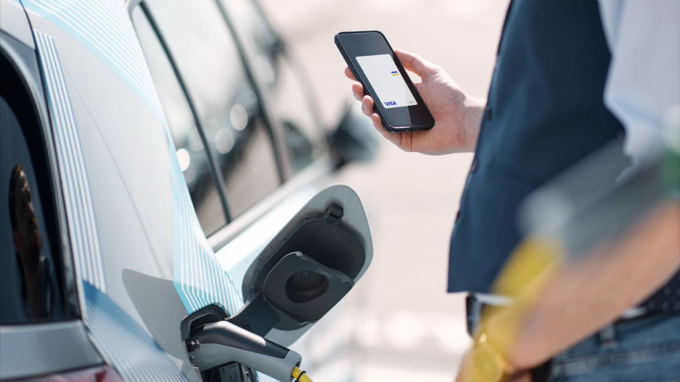Visa: Action to improve the loading structure
BUT IT WAS TIME A call and surveys to standardize systems for seamless and compatible payment at electric vehicle charging stations have been launched by service provider Visa's network in Europe.

The European charging infrastructure industry should work to give e-car users the freedom to pay using the method of their choice.Currently, there is no single industry standard for accepting payments at e-charging stations in Europe. As a result, e-drivers in Europe often do not have a choice of payment method.
Only a few countries offer a uniform solution
They are often forced to choose a specific option (for example, registering with a provider's app) or even face the prospect of not being able to charge their vehicle because they are not registered with a particular subscription service. Only a few European countries - like Germany - have enshrined a uniform approach in law.
To improve the situation in Europe, Visa is launching a survey among e-charging station manufacturers and other industry leaders. The exchange will help identify barriers to widespread adoption of interoperable contactless and digital payments and find solutions.
Cooperation with the Charging Interface Initiative
Visa will also be the first company from the financial services and payments industry to join the Charging Interface Initiative (CharIN) as a full member. CharIN's mission is to promote global standards for electric vehicle charging by bringing together participants from across the e-mobility value chain.
The initiative aims to develop a global infrastructure, a secure charging and payment protocol, and new technologies that will facilitate the transition to electromobility and encourage its faster adoption. As part of its CharIN membership, Visa intends to leverage its payment expertise to support these goals.
Loading a vehicle without problems is the goal
Santosh Ritter, Country Manager Visa Switzerland & Liechtenstein: "We believe that the widespread adoption and diffusion of electric vehicles is essential for Europe to achieve its net zero emissions targets. If we want people to drive electric, we need to ensure that they can easily charge their vehicles. Currently, this is not the case. We want to do our part to find solutions to this challenge."









